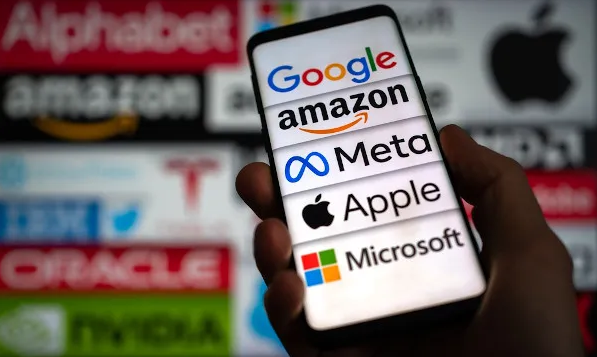Tech Giants’ Heavy Lobbying Campaign Leaves American Innovation and Choice Online Act on the Brink of Defeat
A major legislative effort in the U.S. to curb the power of the country’s largest tech companies is facing a significant hurdle, with a heavy lobbying campaign by Big Tech putting the American Innovation and Choice Online Act at risk of failing before the crucial midterm elections.
Since 2021, Alphabet’s Google, Apple, Amazon, Meta Platforms, and their respective trade groups have spent nearly US$95 million in lobbying efforts to block the bill, which has made more progress than any other U.S. initiative aimed at addressing the dominance of major technology companies.
After almost two years of heated debate, the bill is now at a pivotal point. With the Senate returning for its final stretch before the November midterms, supporters of the bill believe they have enough votes, but uncertainty remains, and the Senate will be focused on other essential spending legislation.
Experts and lobbyists, speaking to a wide range of stakeholders, indicate that momentum behind the bill is waning. Some have described this as a “do-or-die” moment. “If the bill had enough votes, it would already be law,” said Matt Schruers, president of the Computer & Communications Industry Association, which represents the major tech firms.
A failure of the bill would be a major setback for those who argue that Big Tech exerts too much control over people’s lives. It would also be a significant victory for the tech giants, who contend that the bill would undermine privacy, compromise national security, and harm the quality of products enjoyed by consumers.
While there was bipartisan support for antitrust reform during this Congress, the likely shift to a Republican majority in the House next year means that the focus will likely turn to allegations of conservative bias on tech platforms, not antitrust measures. This shift has allowed tech lobbyists to delay the bill’s progress, with key Republican figures, including California’s Kevin McCarthy, opposing the legislation.
Despite this, the bill’s sponsors, including Minnesota Democrat Amy Klobuchar and Iowa Republican Chuck Grassley, are still pushing for a vote. Klobuchar expressed confidence that once the bill reaches the Senate floor, it will pass. The bill has 13 co-sponsors in the Senate, and supporters argue that it has enough backing among undecided lawmakers to secure the necessary 60 votes to pass.
The bill, which has already passed both the House and Senate Judiciary Committees with strong bipartisan support, aims to prevent tech giants from favouring their own products over competitors. This would impact everything from how Google Maps is designed to the prominence of Amazon Basics on Amazon’s e-commerce platform.
Despite some concerns regarding the bill’s effect on privacy and security, amendments have been made to address these issues, strengthening the proposal. However, with the midterms looming and limited time available, the bill’s prospects of becoming law remain uncertain. As the Senate prepares for a packed legislative agenda, it remains to be seen if the bill will secure the votes needed to pass.








